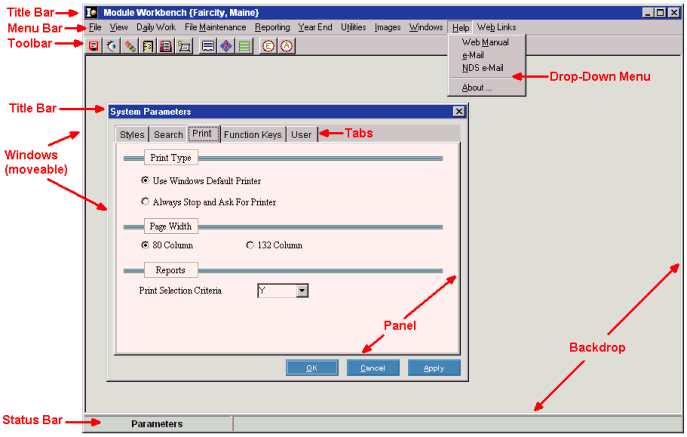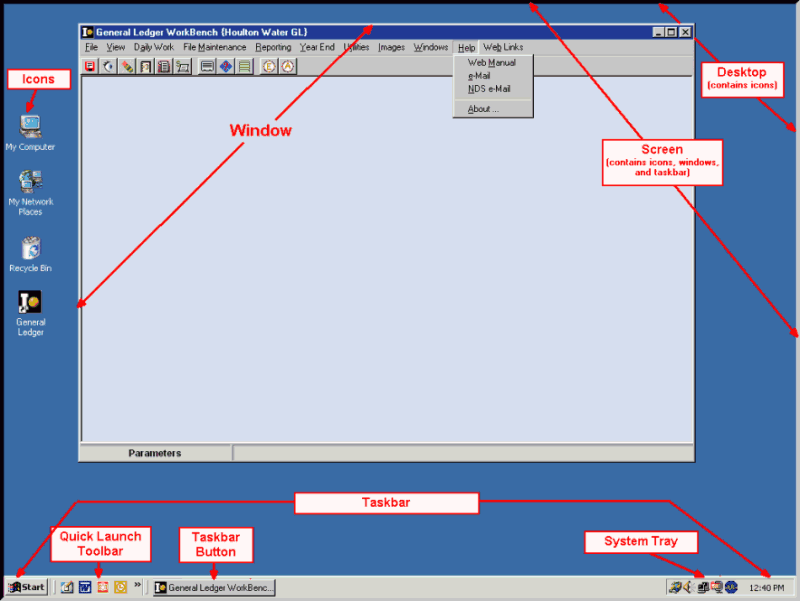Invision window terminology, click More.
Invision Window Example:

|
Invision Window Terminology - Definitions Tip: To see more information about a window term, click the hyperlink for the term. | |
|
Contains the window title. | |
|
Contains the drop-down menus. | |
|
Contains the buttons that can launch frequently used programs. The Toolbar is sometimes called the "button bar". | |
|
An area within the screen, which can be resized and can be moved by dragging the Title Bar. | |
|
Gives specific information about the open window. | |
|
An application feature that allows you to add an image, such as a logo, to the background of the module's windows. | |
|
A clickable projection that looks like a file folder tab. Allows you to change the panel displayed within a window. | |
|
An area within a window, which usually can not be resized or moved. | |
Microsoft screen terminology, click More.
Microsoft Screen Example:

|
Microsoft Screen Terminology - Definitions Tip: To see more information about a screen term, click the hyperlink for the term. | |
|
The entire monitor screen that contains the Windows desktop, any displayed windows, and the Taskbar. | |
|
The portion of the screen containing the icons and windows. | |
|
A clickable image used to launch programs and commands. | |
|
An area within the screen, which can be resized and moved. | |
|
A bar at the bottom of the screen that contains the Start button, buttons for currently open windows and documents, toolbars such as the Quick Launch Toolbar, and the System Tray. | |
|
A section of the Taskbar that contains buttons for launching various programs. | |
|
An area of the Taskbar that contains the clock and icons with information about special active functions. | |